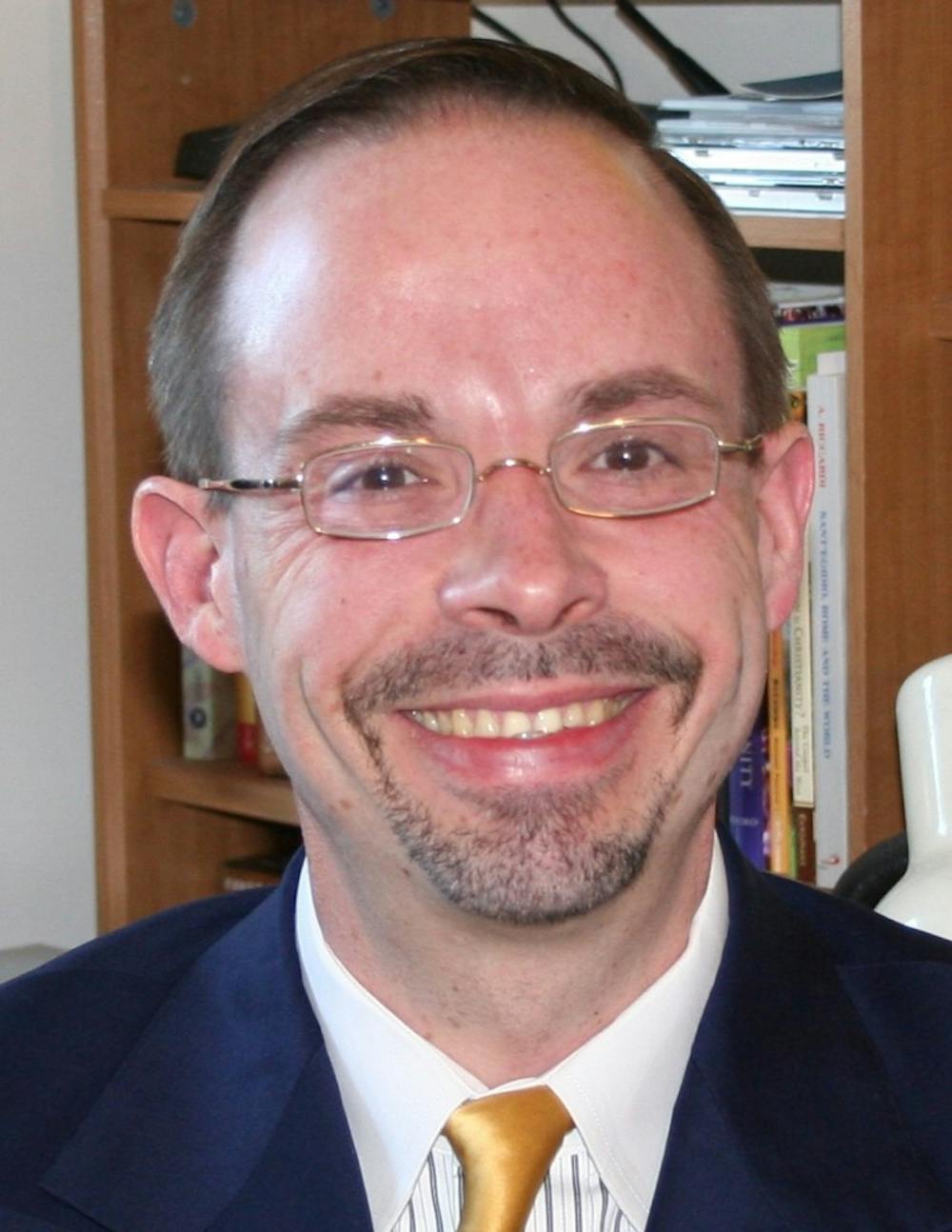John Allen, Vatican correspondent for CNN and NPR. (Photo Courtesy of Jamie Powell)
By Elizabeth Vogel, Staff Writer -- vogel11@up.edu
Q&A
Tonight the University of Portland welcomes one of the foremost Vatican experts to campus. John Allen, Vatican correspondent for CNN and NPR and reporter for the National Catholic Reporter, will give the annual Zahm Lecture tonight at 7:30 in the Buckley Center Auditorium.
He is the author of several books including two biographies of Pope Benedict XVI and "The Future Church: How Ten Trends are Revolutionizing the Catholic Church." He will speak about the future of the Catholic Church. The Beacon interviewed Allen via e-mail when he was in London.
Q: Will this be your first visit to Portland?
A: I've been to Portland once before, for a speaking engagement a few years ago. I remember the landscape as beautiful, the people as warm, and the weather as a little rainy!
Q: What was your area of study in college?
A: I was a philosophy and political science major in undergraduate school, and earned a master's in religious studies from the University of Kansas. I went to the Claremont Graduate School in Los Angeles with the idea of getting a Ph.D. in Biblical studies, but ended up getting seduced by journalism instead.
Q: What inspired your interest in the current politics of the Catholic Church?
A: It's the greatest show on earth! Covering the Vatican means diving into history and art, intrigue and romance, politics and spirituality, theatre and ritual, all rolled up into one big ball. There's no subject that can't be organically connected to the Catholic Church. If today I'm interested in arms control, that's a huge diplomatic priority for the Holy See. If tomorrow I'm into genetically modified organisms, there's a fierce debate going on within the Church pitting anti-GMO activists in the global South against pro-GMO forces in North America. If the next day I felt like contemplating Baroque art, well, some of the best experts in the world are in the Vatican museums. In other words, there's almost no subject of human interest that doesn't come up on this beat, which means it never gets dull.
Q: You are obviously very interested in the life of Pope Benedict XVI, seeing as you have written books about him. Would you say you find him to be the most interesting pope as of late?
A: Every pope is interesting in his own way. John Paul II was obviously "sexier" from a media point of view, and thus was probably a more compelling story, especially in an era of 24-hour instantaneous TV coverage. Benedict is a bit more cerebral; a pope meant to be read carefully, not just seen. If you take the time to read him, however, you will find that he is a world-class intellectual, perhaps one of the most impressive teaching popes of the last couple of centuries. You may not agree with everything, but you'll consistently find his thought to be provocative, rich, and sophisticated. On a personal level, by the way, he's a much nicer guy than people sometimes understand. He's kind, a great listener, and almost shy in person, not the bull in a china shop of popular mythology.
Q: With the negative media attention the Catholic Church has received recently, what advice would you give to Catholic college-aged students, such as the many that populate the University of Portland?
A: My basic advise is this: Educate yourselves! We live in a culture of incredibly high levels of religious illiteracy, which means that much of what you hear about religion from the media, or in the classroom, or in casual conversation at the coffee bar turns out to be half-baked, misleading, or just flat wrong. You obviously don't have to agree with everything the Pope or Catholic Church says and does, but you ought to make an effort to understand what's actually going on before you draw conclusions. You can also help your friends do the same thing. They wouldn't tolerate arguments based on ignorance in politics or sports or economics, and there's no reason they ought to do it in religion either.








